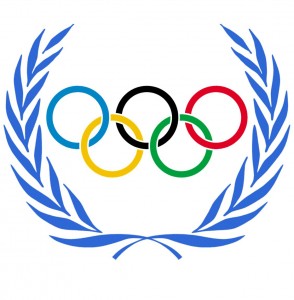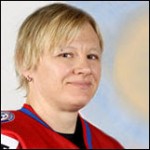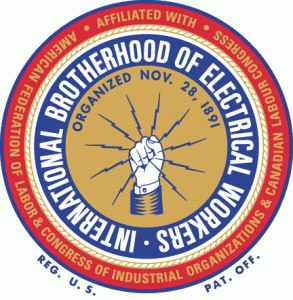IBEW member, member’s daughter hit the ice in Sochi
 Springfield, Mo. – Electrical Workers (IBEW) Local 453 member Craig Scott was in Sochi, Russia watching his daughter Emily compete for Olympic gold in several short track speed skating events. But it wasn’t an easy journey for father or daughter
Springfield, Mo. – Electrical Workers (IBEW) Local 453 member Craig Scott was in Sochi, Russia watching his daughter Emily compete for Olympic gold in several short track speed skating events. But it wasn’t an easy journey for father or daughter

Emily, 25, was a world champion inline skater before taking up short track speed skating about five years ago. But with the U.S. Speedskating cutting her funding last year, a part-time job not bringing in enough to pay the bills or give her time to train and a crowdfunding effort falling short, Emily was on the verge of giving up her dream.
That is, until a USA Today profile of her struggles sparked nearly $50,000 in donations and allowed her to quit her job and focus on training and making the Olympic team.
SINGLE UNION DAD
Scott, who works at a Springfield sign company, raised Emily and her older sister for most of their lives as a single father. He told the Springfield News-Leader that he has lived “paycheck to paycheck” to support Emily’s training and competitions from her inline days to her speed skating.
In Sochi last week to cheer her on, Scott said: “It’s taken a little while to sink in. It’s 20 years of hard work, and finally everything has sort of come together.”
AND ON THE RUSSIAN TEAM…
Another IBEW member, Ekaterina Pashkevitch, 41, of Local 96 in Worecester, Mass., took to the ice in Sochi last week, playing center for the Russian women’s Olympic hockey team.
Halfway across the world in central Massachusetts, her brothers and sisters from Local 96 were tuning in to root her on.
MOVED TO U.S. AFTER VISITING

When not in skates, Pashkevitch, known as Kat, works as a journeyman electrician. Born in Moscow, she moved to Massachusetts in 1994 after visiting the area during a North American tour with the Russian team.
She became a U.S. citizen soon after.
Pashkevitch began skating at the age of three, and soon became one of the best women players in Europe. She started competing at an international level in the mid-90s, leading Russia to two medals in International Ice Hockey Federation championships, and was named MVP multiple times. Sochi marks her third Olympic appearance.
After coming to the United States, she remained involved in women’s hockey, coaching the Massachusetts Institute of Technology’s women’s team for two years.
UNION OFFERED HER A LIFELINE
 Despite her hockey success and impressive educational background, Kat found it hard to make ends meet in America.
Despite her hockey success and impressive educational background, Kat found it hard to make ends meet in America.
“When I got back after the 2006 Olympics I was broke, I had no money,” she told the Worcester Telegram and Gazette. ”I had to work minimum wage jobs.”
She was doing maintenance work at a local motel, when her manager noticed she had a knack for electrical work. He suggested she check out the IBEW.
“Kat does a great job,” said Local 96 Business Manager Leo E. Miller Jr. “She works very hard, and at the worksite she’s just one of the guys.”
She is one of the few women in the local, but Kat is experienced with knocking down gender barriers. Her parents were shocked when she told them she wanted to play on the boy’s hockey team, as she told Women’s Hockey Web in 1997.
“It was very weird for girls to play hockey, or play with boys at all,” she said.
In 1993, she became a charter member of Russia’s first-ever women’s team.
Miller asked Kat why she didn’t try getting a full-time coaching position. “She told me she loves the work and being outside,” he said.


Leave a Reply